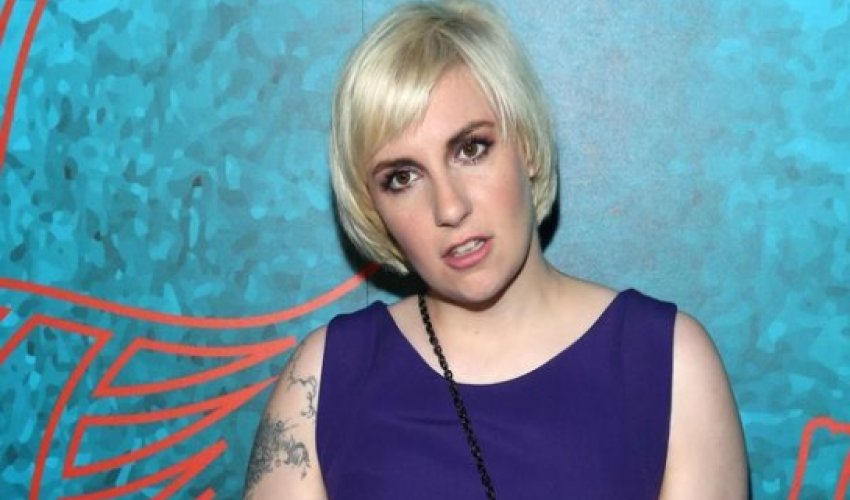Lena Dunham and the confessional memoir

If you’ve ever tuned in to the cult TV show Girls, you probably feel like you know plenty about Lena Dunham already. Not only is she its creator, writer, director and executive producer, she also plays the role of Hannah Horvath, a 20-something Brooklynite whose fierce literary ambition is just one of many apparent similarities to Dunham herself.As it turns out, Dunham’s much discussed on-screen nudity is nothing compared to the nakedness she displays on the pages of her feverishly anticipated memoir, Not That Kind of Girl. “I thought I knew the author rather well, and I found many (not altogether welcome) surprises,” notes Carroll Dunham in a cover quote. Carroll, in case you don’t know, is Dunham’s dad and the book is every bit as jaw-droppingly candid as that blurb suggests.Over the course of a series of short, sharp chapters divided into sections like Love & Sex, Body and Big Picture, Dunham shares stories that are sometimes funny, sometimes troubling, and always profoundly intimate. Though she never flinches, many a reader might. There are depictions of her first therapy session (she was nine), of the anticlimactic loss of her virginity in college and the predatory older men she has to navigate as a young writer. As you’d expect from the mind that unleashed Girls, she talks extensively about bodily matters, including her ovaries, masturbation, and the fear that anorexia might actually be contagious.Kick-started by blockbusters like Dave Pelzer’s A Boy Called It and Frank McCourt’s Angela’s Ashes, memoir has boomed in the past couple of decades. Yet our appetite for female-authored tell-alls is nothing new. As far back as 1902, a Montana teen became an overnight literary sensation when she published The Story of Mary MacLane, detailing her desire for other women and also the devil. (MacLane had initially wanted to title the memoir I Await the Devil’s Coming.)More recently, Mary Karr’s The Liars’ Club chronicled a Texan childhood in a family rife with addiction and mental health problems; poet Katha Pollitt described web-stalking an ex-boyfriend and proofreading porn in Learning to Drive: And Other Life Stories; and Koren Zailckas looked back on her adolescent descent into alcoholism in Smashed. Just this month in France, a kiss-and-tell memoir by Valerie Trierweiler, President Hollande’s jilted squeeze, sold 145,000 copies in its first week alone.At this point, I should probably explain that I’m no stranger to the genre, having five years ago published a memoir of my own, Chastened: My Modern Adventure in Old-Fashioned Romance. The book charts my decision to embrace a yearlong vow of chastity in the hopes of rediscovering the meaning of intimacy and finding a more effective means of pursuing it than contemporary dating seemed to provide. Once the year was up, I sat down at my desk and wrote in a great rush. As a journalist, I’m trained to make sure each assertion stands up to fact-checkers, and I held every sentence to the same standard. That meant sharing a lot – some of which I was only acknowledging to myself for the first time. As EM Forster puts it in one of my favourite quotes about writing, ‘How do I know what I think until I see what I say?’Stranger than fictionThere was just so much to do, that only when the book was actually in bookshops did it dawn on me that strangers were going to be able to pick it up. It took a text from a friend to bring it home: “You’re so brave,” she said. “Uh-oh,” I thought. Of course, I’d known I’d be able to force my family to read it, so I had them covered in its dedication: “For my mother, who should probably read no further, and my sister, who knows it all without having to”. But complete strangers? At every stop on the book tour, I wanted to snatch back copies pushed at me to sign.But here’s the curious thing – the more particular you are regarding the details of your experience, the more universal it becomes. Not only did readers relate, they felt they knew me so well they could spill all manner of their own secrets in return. And for all that I’d revealed, there was plenty I’d held back. The same goes for every memoir that’s worth reading, even books that seem as full-frontal as Dunham’s or, say, The Sexual Life of Catherine M, with its graphic scenes of orgies attended by author Catherine Millet in her quest for the “sexual grail”.Candid though they are, confessional memoirs are as defined by what’s been left out as what’s been put in. Despite all the juicy secrets that such books let their readers in on, nothing shapes a work of non- fiction more profoundly than the author’s decisions about what to put in and what to leave out. As Annie Dillard writes in her essay To Fashion a Text, “You have to take pains in a memoir not to hang on the reader’s arms, like a drunk, and say, ‘And then I did this and it was so interesting’.”The extent of what you can divulge is also limited by ethical obligations and legal constraints, ensuring you protect the innocent and are protected from the guilty. You don’t want to upset those close to you or incite the wrath – and lawyers – of those who once were but no longer are. Or at least, not while those concerned are still living. In Mommie Dearest, one of the first celebrity confessionals, Christina Crawford famously describes her mother Joan Crawford’s alcoholism, abusiveness and bisexuality, but it wasn’t published until after the death of ‘Mommie’.Unreliable narrator?And then there’s the reliability of the author’s memory to consider. Have you ever noticed how narrative variance peaks when siblings describe shared childhood recollections? Memory is nothing if not fallible. As John Updike writes in his novel Memories of the Ford Administration, “Memory has a spottiness, as if the film was sprinkled with developer instead of immersed in it. And then as in an optical illusion the eye makes what it can of the spots.”Dunham touches on this in a chapter called Barry. It’s powerfully unsettling, miraculously poised and deals with an episode of rough sex in which consent was never explicitly given. A confusing situation, but was it rape, she now wonders? Over the years, she’s tried to resist the idea. Even now, she explains, she is an unreliable narrator, listing all the reasons why. “But mostly,” she concludes, “because in another essay in this book I describe a sexual encounter with a moustachioed campus Republican as the upsetting but educational choice of a girl who was new to sex when, in fact, it didn’t feel like a choice at all.”There are plenty of dos and don’ts in memoir. Don’t treat it as therapy or mistake it for journaling. Don’t use it to settle scores and strike back. Do be gutsy – just because a story is sensitive, doesn’t mean you should back away. Do strive for objectivity, tough though that is when working with material that’s by necessity personal. Also, remember you’re probably not the hero of your own story, whatever Joseph Campbell says. Make yourself as vulnerable, flawed and weak as – being human – you likely are. Not That Kind of Girl exemplifies all of the above, showcasing a writer triumphantly in control of her material, even when she was anything but while living through it.“If I could take what I’ve learned and make one menial job easier for you, or prevent you from having the kind of sex where you feel you must keep your sneakers on in case you want to run away during the act, then every misstep of mine was worthwhile,” Dunham tells readers in the introduction. But she does something even better, too. Through the unguarded, beady brilliance of her book, she shows that the way you choose to order your impressions, how you word them and which details you nudge into the foreground, profoundly shapes the story you’re telling. Which is to say, life is what you make of it, and that’s a lesson well worth remembering off the page as well as on. Above and beyond their ability to move and to shock us, is also why such memoirs remain so popular.(BBC)Bakudaily.Az




































 Photo
Photo 



 Video
Video 

